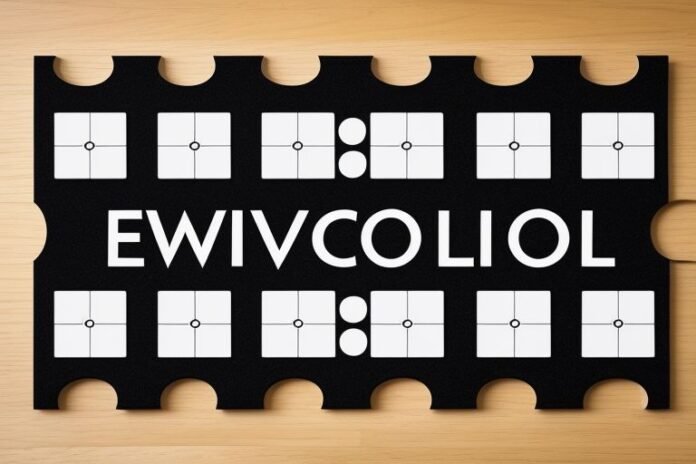The overly confident crossword NYT can challenge even the sharpest puzzle solvers. Many people start with high confidence but quickly realize it’s not as easy as it seems. The New York Times crossword has a reputation for tricky clues that can make anyone second-guess themselves.
In this blog post, we’ll explore why the NYT crossword can be so deceptive, especially for those who feel overly confident. We’ll share useful tips, fun facts, and strategies to help you tackle this famous puzzle like a pro.
What Makes the Overly Confident Crossword NYT So Tricky
The NYT crossword puzzle is not just a game; it’s a test of logic, word knowledge, and creativity. The puzzle tricks solvers by using clever wordplay and misleading clues. People who feel overly confident often fall into these traps.
- Clues with double meanings confuse even experienced players.
- Words that look familiar may have uncommon definitions.
- Puzzle patterns often break common assumptions.
Even confident solvers must stay alert and read every clue carefully. The crossword demands attention to detail and patience.
The Psychology Behind Overconfidence in Crossword Puzzles
Overconfidence can make puzzles harder. When you think you know the answer, you might skip checking clues twice. This confidence can lead to mistakes.
- The brain loves patterns and fills gaps with familiar words.
- Overconfidence can cause solvers to ignore tricky clues.
- The NYT crossword often uses deceptive techniques to mislead confident players.
To succeed, stay humble and double-check every guess. Crossword-solving requires both knowledge and caution.
Common Mistakes of Overly Confident Crossword Solvers
Confidence can be helpful, but it can also cause errors. Here are common mistakes solvers make:
- Ignoring the Theme: Many puzzles have themes that provide hints.
- Rushing Through Clues: Speed often leads to mistakes.
- Not Rechecking Answers: A single wrong word can block other answers.
- Overthinking Simple Clues: Not every clue is a trick.
- Sticking to One Word: Flexibility in thinking is crucial.
Learn to balance confidence with careful thinking.
NYT Crossword Difficulty: Why Confidence Can Work Against You
The NYT crossword varies in difficulty throughout the week. Monday puzzles are easy, but Saturday ones are tough. Overconfidence can be harmful if you underestimate the challenge.
- Early-week puzzles build confidence with simple clues.
- Mid-week puzzles add tricky wordplay.
- Late-week puzzles require deep vocabulary and patience.
Stay flexible and adjust your strategies as the puzzles get harder.
Tips to Solve the NYT Crossword Without Getting Overconfident

Smart solving strategies can help you avoid mistakes:
- Start with Easy Clues: Build momentum and confidence.
- Look for Theme Entries: Themes often simplify solving.
- Stay Patient: Take breaks if stuck.
- Use the Crossword App Tools Wisely: Don’t rely too heavily on hints.
Confidence is good, but caution ensures success.
Hidden Tricks in NYT Crossword That Even Experts Miss
The NYT crossword includes clever tricks that stump solvers:
- Misleading punctuation to confuse.
- Uncommon words to test vocabulary.
- Cultural references that require broad knowledge.
Recognizing these tricks helps avoid common pitfalls.
How the NYT Crossword Evolved to Outsmart Overconfidence
The NYT crossword has changed over time. Editors have added more creativity and trickery to the puzzles.
- 1940s: Simple word puzzles dominated.
- 1970s: Clever wordplay became common.
- 1990s and Beyond: More pop culture and modern references appeared.
Staying updated on puzzle trends improves solving skills.
Real Stories of Puzzle Fans Humbled by NYT Crossword Clues
Even experienced solvers have puzzle mishaps. Many confident players have shared their struggles online.
- A teacher who missed a simple pun.
- A writer who misread a cultural reference.
- A math expert who guessed incorrectly on a basic word.
These stories remind us to stay humble.
Building Smart Confidence for NYT Crossword Success
Smart confidence combines knowledge with caution. Here’s how to develop it:
- Practice Regularly: Familiarity with puzzle patterns helps.
- Learn Common Tricks: Study puzzle-solving strategies.
- Stay Curious: Enjoy the learning process.
With the right mindset, anyone can conquer the NYT crossword.
Fun Facts About the NYT Crossword: A Puzzle of Surprises

The NYT crossword has many interesting facts:
- It started in 1942 during World War II.
- The Sunday puzzle is the largest and most famous.
- Will Shortz has been the editor since 1993.
Puzzles can be both fun and challenging. Stay curious and enjoy the journey.
Conclusion
The overly confident crossword NYT can surprise even smart people. It looks simple, but clever tricks and hard clues make it tricky. If you stay calm, read clues carefully, and practice, you can get better over time.
Remember, confidence is good, but being too sure can cause mistakes. Enjoy the puzzle, have fun, and don’t worry if you get stuck. Learning from mistakes makes you a better solver.
FAQs
Q: Why is the NYT crossword so hard sometimes? A: The NYT crossword gets harder through the week. Monday is easiest, and Saturday is the hardest.
Q: How can I avoid mistakes in the crossword? A: Take your time, read clues twice, and don’t rush. Double-check answers when you’re unsure.
Q: What does being overly confident mean in crossword puzzles? A: It means thinking you know the answers too quickly and not checking your work.
Q: Are there tools to help with the NYT crossword? A: Yes, the NYT app has hints and checks to help you when you’re stuck.
Q: Can beginners solve the NYT crossword? A: Yes, start with Monday puzzles and practice. You’ll get better as you go.


